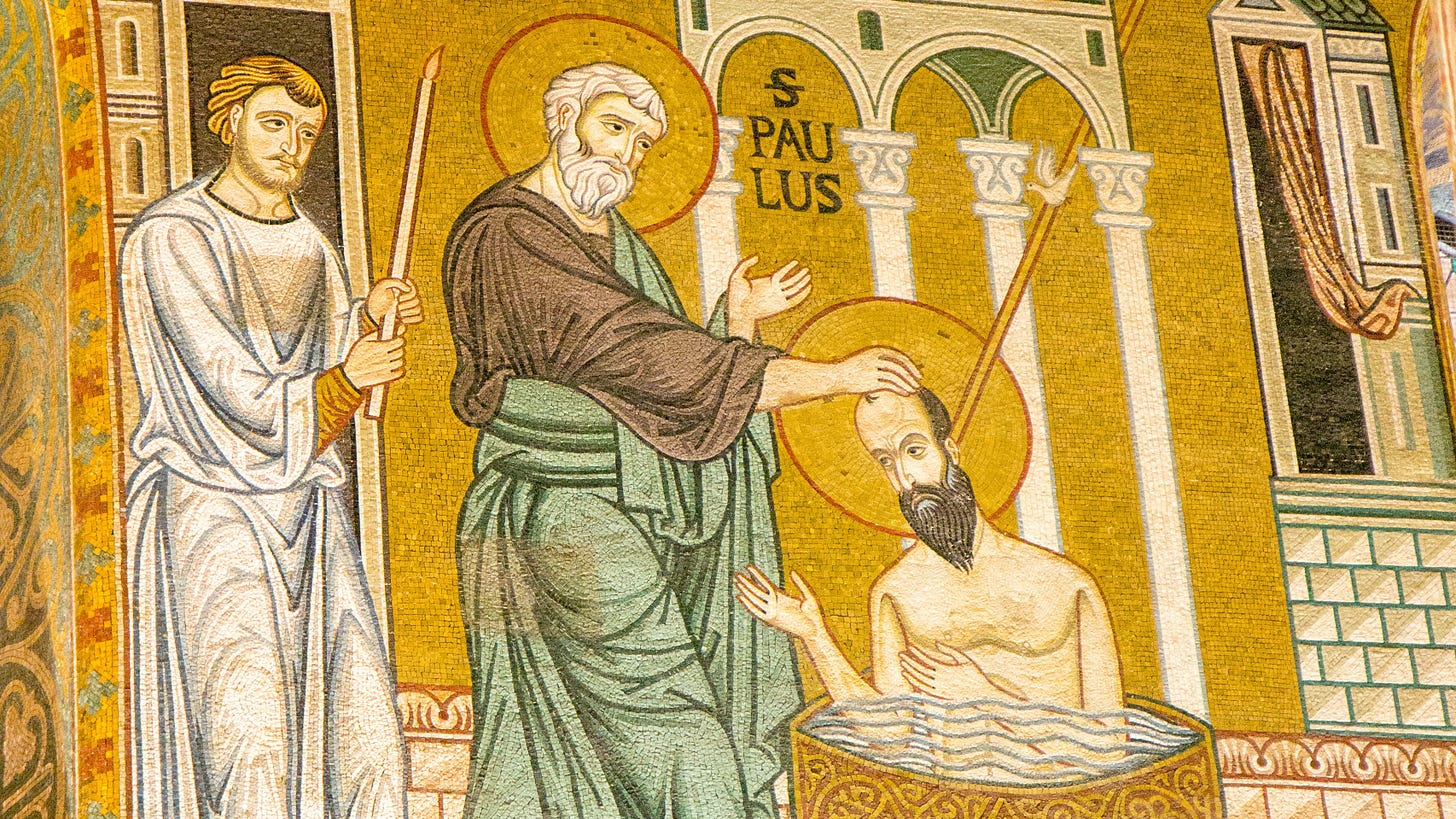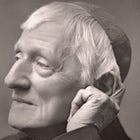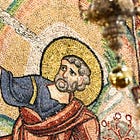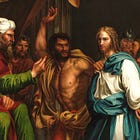What did St Paul do straight after his conversion?
He didn't set up a YouTube channel, that's for sure.

He didn't set up a YouTube channel, that's for sure.
In this piece, Father Coleridge tells us:
How even St. Paul, though personally converted by Christ, was sent to the Church to be formally received through Baptism.
Why his retreat to Arabia was a crucial period of divine instruction, preparing him to proclaim the Gospel with Apostolic authority.
What the harmony between St. Luke’s and St. Paul’s accounts reveals about the Apostle’s mission and his profound humility.
He shows us that St. Paul’s journey underscores the Church’s vital role in our salvation, and for his mission to the Gentiles.
His conversion also teaches us a lot about how new converts should act when they enter the Church. The situations in which should immediately start putting themselves forward as teachers are extraordinarily rare.
Setting up a YouTube channel and starting to teach others about the faith would be an extraordinary thing for a new convert to do, and would seem to be quite rash without a clear mandate from God or the Church.
The Conversion of St Paul
From
Mother of the Church: Mary in the First Apostolic Age
Fr Henry James Coleridge, 1886, Ch. VIII, pp 176-182
St Paul is sent to the local Church
This only adds greater force to the consideration which is so often made on this passage, that our Lord referred even the chosen vessel of grace, whom He had Himself converted by His own presence, to the ordinary teaching of the Church.
We find that when St. Ananias is sent to St. Paul to admit him formally into the Christian community by holy Baptism, he does not offer him any detailed instruction either on this point or on any other, as if he was conscious that the person to whom he was speaking had already received sufficient light on the articles of the faith.
The historian adds that after his Baptism St. Paul took food and was strengthened. It would be natural that he should be exhausted by his three days of strict fast, and therefore the words may simply mean the food which he was so much in need of for the body. There may, however, be a reference to the food of the soul in Holy Communion.
It seems also likely that this great conversion was not made public at once, and that the future Apostle left Damascus immediately to spend the long time of retirement in Arabia, of which he speaks in the Epistle to the Galatians.
St Luke’s narrative
It is clear that we are to consider the short account of this marvellous event which St. Luke gives us in his narrative as describing only the bare outward incidents in the most concise way. St. Luke knew that he would have to give at a later place in his work the report of the two speeches of St. Paul, of which mention has been made.
He knew also that, before he published his work, the Epistle to the Galatians had been written by St. Paul, in which many details are given which it was not his own direct business to recount, and that the eminent dignity of the Apostle, whose companion he was, was already a fact known to the faithful all over the world.
Thus his account in the place of which we are speaking is as concise as we say, and it leaves out for the time any reference to the great commission which, as we learn from St. Paul himself, was given to him by our Lord at the very moment of his conversion.
St. Luke in the place before us only tells us how the great Apostle asked our Lord, “trembling and astonished, Lord, what wilt Thou have me to do?”
“And the Lord said to him, Arise and go into the city, and there it shall be told thee what thou shalt do. And Saul arose from the ground, and when his eyes were opened he saw nothing. But they leading him by the hands brought him to Damascus. And he was there three days without sight, and he did neither eat nor drink.”1
Then St. Luke gives his account of the mission of Ananias by our Lord, after which there fell from his eyes as it were scales, and he received his sight, and rising up he was baptized, and when he had taken meat he was strengthened.
From this the Evangelist passes on to the visit of the Apostle to Damascus after his long retirement in Arabia, of which he makes no mention at all.
Want to find out what happened next? Then hit SUBSCRIBE today
Here’s why you should subscribe:
Coleridge provides solid explanations of the entirety of the Gospel
His work is full of doctrine and piety, and is highly credible
He gives a clear trajectory of the life of Christ, its drama and all its stages.
If more Catholics knew about works like Fr Coleridge’s, then other works based on dubious private revelations would be much less attractive.
But sourcing and curating the texts, cleaning up scans, and editing them for online reading is a labour of love, and takes a lot of time.
Take a look at the progress we have made so far:
Will you be a part of this project and hit subscribe?






